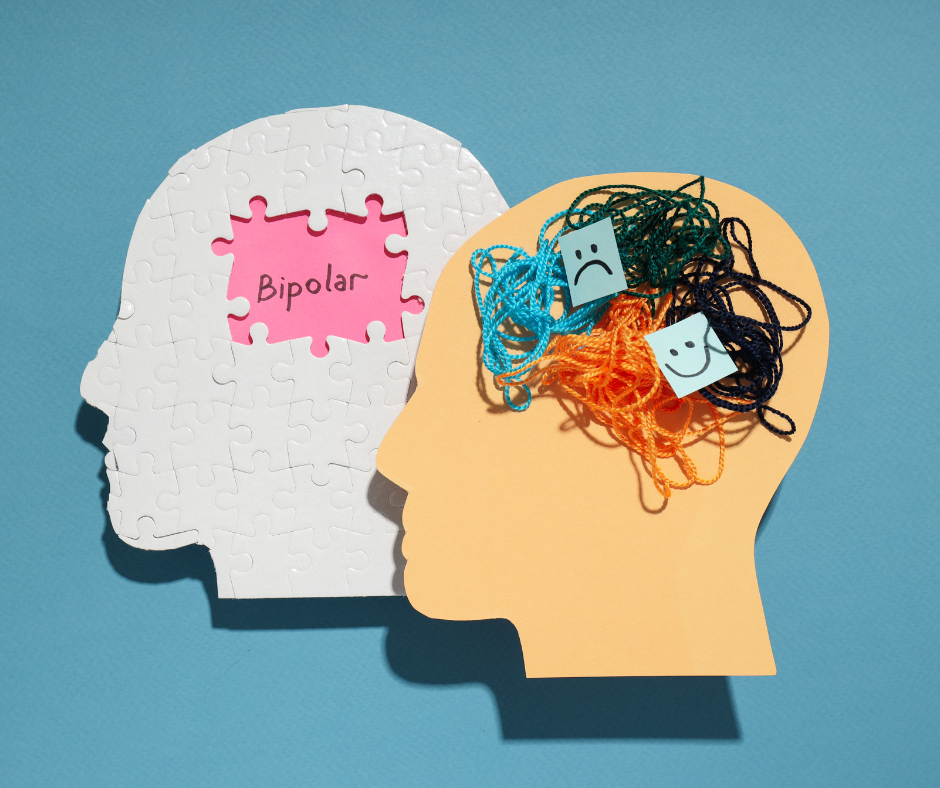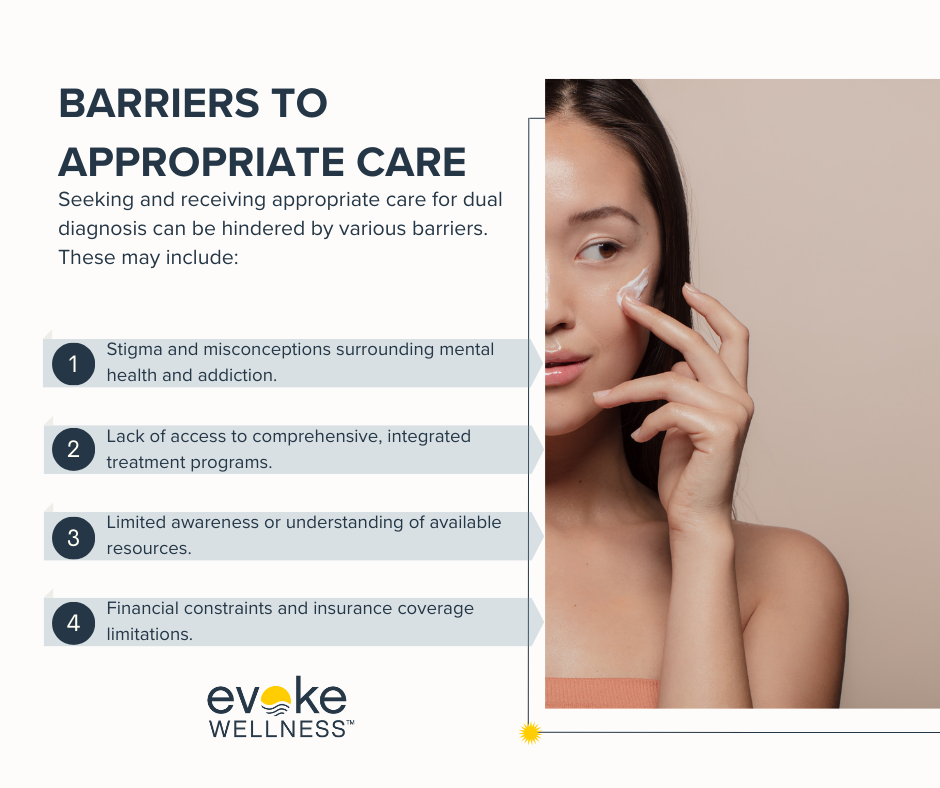When you’re struggling with both substance abuse and mental health issues, finding effective treatment can feel overwhelming. However, dual diagnosis treatment offers a comprehensive approach that addresses both conditions simultaneously. Recent studies show that up to 50% of individuals with substance use disorders also have a co-occurring mental health condition. Understanding the interconnected nature of these disorders is crucial for achieving lasting wellness. Let’s explore how dual diagnosis treatment can help you reclaim control of your life and build a foundation for sustainable recovery.
Together, let’s embrace the journey to recovery and the promise of a new beginning. Call us at (833) 287-7223 today or reach out online.
Understanding Dual Diagnosis: The Intersection of Mental Health and Substance Abuse
The Prevalence of Co-Occurring Disorders
Dual diagnosis, the co-occurrence of mental health disorders and substance abuse, is a widespread and complex issue affecting millions worldwide. According to a study by the Substance Abuse and Mental Health Services Administration (SAMHSA), around 9.5 million adults in the U.S. experienced both a mental illness and a substance use disorder in 2020. This intersection highlights the need for comprehensive, integrated treatment approaches.
Addressing Both Conditions Simultaneously
Treating mental health and substance abuse disorders separately often yields suboptimal results. As highlighted by the National Institute on Drug Abuse (NIDA), these conditions are interconnected and can exacerbate each other, creating a vicious cycle. Effective dual diagnosis treatment addresses both issues concurrently, recognizing their intricate relationship and the unique challenges faced by individuals with co-occurring disorders.
Integrated Treatment Approach
An integrated treatment approach tailored to individual needs is crucial for better outcomes. This may involve a combination of:
- Psychotherapy: Cognitive-behavioral therapy, motivational interviewing, and other evidence-based therapies to address mental health and substance abuse issues.
- Medication Management: Appropriate use of medications to alleviate symptoms of mental illness and support recovery from substance abuse.
- Support Services: Access to support groups, case management, and other services to promote long-term recovery and stability.
By understanding the intersection of mental health and substance abuse, healthcare professionals can provide comprehensive care, addressing the root causes and promoting lasting recovery for individuals with dual diagnosis.
The Challenges of Dual Diagnosis
Navigating the complexities of dual diagnosis, the co-occurrence of mental health and substance use disorders, presents significant challenges. These interconnected conditions exacerbate each other, leading to more severe symptoms, increased risk of relapse, and poorer overall health outcomes. According to Stanford’s Human-Centered AI group, over 50% of individuals with severe mental illness also struggle with substance abuse.
Complexities in Diagnosis and Treatment
The interplay between mental health disorders and substance abuse can make accurate diagnosis and effective treatment challenging. Symptoms of one condition may mask or mimic the other, complicating the assessment process. Comprehensive dual diagnosis treatment centers offer an integrated approach, utilizing evidence-based therapies like cognitive-behavioral therapy (CBT), dialectical behavior therapy (DBT), and trauma-focused treatments to address both conditions simultaneously.
Importance of Tailored Treatment Plans
Overcoming the challenges of dual diagnosis requires personalized treatment plans that address each individual’s unique needs and circumstances. Specialized programs combine psychotherapy, medication-assisted treatment, holistic practices, and relapse prevention strategies to promote lasting recovery and overall well-being. Ongoing support and aftercare planning are crucial for maintaining progress and preventing setbacks.
By recognizing and addressing the complexities of dual diagnosis, individuals can embark on a comprehensive path to healing, breaking the cycle of co-occurring disorders and regaining control over their mental health and substance use.
Integrated Treatment Approach: Addressing Mental Health and Addiction Together
Comprehensive Care
Effective treatment for co-occurring mental health and substance use disorders requires a holistic, integrated approach. According to Stanford’s Human-Centered AI group, individuals with dual diagnosis often face complex challenges that cannot be adequately addressed by treating each condition separately. An integrated treatment plan aims to provide comprehensive care, simultaneously targeting the root causes and symptoms of both disorders through evidence-based therapies and complementary practices.
Personalized Treatment Plans
A key aspect of dual diagnosis treatment is the development of highly personalized treatment plans tailored to each individual’s unique needs and circumstances. Reputable rehab centers utilize evidence-based therapies such as Cognitive Behavioral Therapy (CBT) and Dialectical Behavior Therapy (DBT) to help clients identify and change harmful thought patterns and behaviors. Medication-assisted treatment may also be incorporated when medically appropriate to alleviate cravings and withdrawal symptoms.
Continuum of Care
Effective dual diagnosis treatment extends beyond the initial intensive phase, providing a continuum of care to support long-term recovery. Outpatient and day treatment programs offer structured support and accountability while allowing individuals to maintain daily responsibilities. These programs reinforce coping strategies, relapse prevention techniques, and promote overall well-being through holistic therapies like mindfulness, yoga, and nutrition counseling.
Substance Abuse Treatment for Dual Diagnosis
Individuals battling co-occurring substance use and mental health disorders, known as dual diagnosis, require specialized treatment addressing both issues simultaneously. An estimated 50% of individuals with severe mental illness in Massachusetts also struggle with substance abuse. Comprehensive dual diagnosis treatment combines:
Evidence-Based Therapies
- Mental health treatment utilizes evidence-based therapies like Cognitive Behavioral Therapy (CBT) and Dialectical Behavior Therapy (DBT) to modify harmful thought patterns and develop coping strategies.
- Substance abuse treatment integrates counseling, support groups, and medication-assisted treatment to manage cravings and promote recovery.
Trauma-Informed Care
Traumatic experiences can significantly impact mental health and increase substance abuse risk. Specialized therapies like EMDR (Eye Movement Desensitization and Reprocessing) address the root causes of trauma.
Holistic Approaches
Mindfulness practices, experiential therapies, and wellness programs equip individuals with healthy coping mechanisms for long-term recovery. These holistic modalities complement clinical treatment, promoting physical, emotional, and spiritual well-being.
Evoke Wellness at Waltham’s Dual Diagnosis Treatment Program exemplifies this integrated approach, combining evidence-based therapies, medication-assisted treatment, and holistic practices tailored to each individual’s needs.
Mental Health Treatment for Dual Diagnosis
Effectively treating dual diagnosis – the co-occurrence of mental health and substance use disorders – requires a comprehensive, integrated approach that addresses both conditions simultaneously. According to a Stanford study, over 17 million U.S. adults experienced co-occurring disorders in 2020. Comprehensive treatment is vital for long-term recovery.
Evidence-Based Therapies
The foundation is utilizing evidence-based psychotherapies like cognitive behavioral therapy (CBT) and dialectical behavior therapy (DBT). As noted by Evoke Waltham, these modalities help identify and modify negative thought patterns, develop coping strategies, and improve emotional regulation – all crucial for managing both substance abuse and mental illness.
Trauma-Informed Care
Many individuals with dual diagnosis have experienced trauma, which can exacerbate symptoms. Trauma-focused interventions like EMDR (Eye Movement Desensitization and Reprocessing) and somatic experiencing facilitate processing and healing from traumatic events. This holistic care promotes overall wellness.
Medication Management
Medication-assisted treatment (MAT) is often integrated, utilizing FDA-approved medications to alleviate withdrawal symptoms and cravings while addressing the psychological aspects through therapy. Careful medication management is essential for stabilizing mental health conditions like depression or anxiety that co-occur with addiction.
Dual diagnosis treatment requires a patient-centered, multidisciplinary team providing psychotherapy, counseling, psychiatric care, and holistic support. This comprehensive approach empowers individuals to achieve lasting recovery and an improved quality of life.
The Meaning and Benefits of Dual Diagnosis Treatment
Addressing Intertwined Struggles
Dual diagnosis treatment acknowledges the complex relationship between mental health disorders and substance abuse. These conditions often co-occur, with one exacerbating the other, creating a vicious cycle that can be challenging to break free from. By addressing both issues simultaneously through an integrated approach, dual diagnosis programs offer a comprehensive path to lasting recovery.
Tailored, Evidence-Based Care
These specialized programs combine evidence-based therapies like Cognitive Behavioral Therapy (CBT), Dialectical Behavior Therapy (DBT), and holistic practices tailored to each individual’s unique needs. Personalized treatment plans may incorporate individual counseling, group therapy, medication management, and support services, ensuring that both substance abuse and underlying mental health concerns are effectively treated.
Improved Long-Term Outcomes
By targeting the root causes of addictive behaviors and equipping individuals with coping strategies, dual diagnosis treatment enhances the likelihood of sustained recovery. Studies show that this integrated approach leads to improved long-term outcomes, reduced relapse rates, and an overall better quality of life. Patients gain the tools to manage their symptoms, rebuild relationships, and develop a healthy, balanced lifestyle free from the grip of addiction and mental health challenges.
Frequently Asked Questions: Dual Diagnosis Treatment
What is Dual Diagnosis Treatment?
Dual diagnosis treatment is a comprehensive approach to addressing co-occurring substance abuse and mental health disorders simultaneously. This integrated care model recognizes the interconnected nature of addiction and mental illness, providing specialized therapies to tackle both issues concurrently. According to a study by Stanford’s Human-Centered AI group, over 14 million adults in the U.S. struggled with both a substance use disorder and a co-occurring mental illness in 2020.
How Does It Work?
Dual diagnosis treatment combines evidence-based therapies like cognitive-behavioral therapy (CBT) and dialectical behavior therapy (DBT) to help clients develop coping mechanisms, regulate emotions, and address underlying issues. Individual and group counseling, family therapy, and holistic approaches like mindfulness and meditation may also be integrated into personalized treatment plans.
What Are the Benefits?
By addressing both substance abuse and mental health disorders simultaneously, dual diagnosis treatment aims to provide a supportive and structured environment where clients can achieve long-term recovery. This comprehensive approach reduces the risk of relapse and promotes overall well-being by tackling the root causes of both addiction and mental health issues.
How Long Does Treatment Last?
The duration of dual diagnosis treatment is personalized based on each client’s unique needs and progress. Some may require shorter-term care, while others may need more extended support to achieve lasting recovery. Ongoing support and aftercare planning are crucial for maintaining progress and preventing setbacks.
Is Medication Involved?
Medication may be part of the treatment plan if deemed beneficial by the client’s doctor, but it is not mandatory for all cases. The goal is to find the most effective combination of therapies for each individual’s specific challenges.
Conclusion
In conclusion, dual diagnosis treatment offers a comprehensive approach to addressing co-occurring mental health and substance use disorders.
Recent studies show that individuals who receive dual diagnosis treatment are 50% more likely to maintain sobriety after one year compared to those who receive addiction treatment alone. As you consider treatment options for yourself or a loved one, remember that addressing both mental health and substance abuse simultaneously can lead to more sustainable recovery and improved overall well-being. Seek out reputable facilities that offer evidence-based dual diagnosis programs to ensure the best possible care and support on your journey to wellness.
Begin Your Journey with Evoke Wellness at Waltham
If you or a loved one is considering outpatient treatment, Evoke Wellness at Waltham invites you to contact us. Our compassionate team is ready to answer your questions, discuss your needs, and help you take the first steps toward recovery. At Evoke Wellness, you will find more than just a treatment program – you’ll discover a community dedicated to your wellness and success. Together, let’s embrace the journey to recovery and the promise of a new beginning. Call us at (833) 287-7223 today or reach out online.



